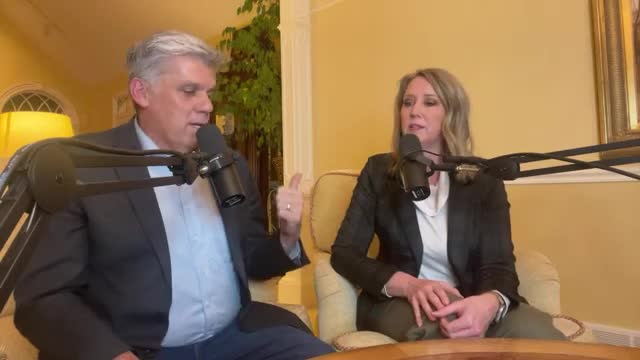Utah legislators face backlash over SB 54 amid election integrity concerns
January 11, 2025 | Phil Lyman (R), Utah Governor Race, 2024 -2025 Utah Citizen Journalism, Elections, Utah
This article was created by AI summarizing key points discussed. AI makes mistakes, so for full details and context, please refer to the video of the full meeting. Please report any errors so we can fix them. Report an error »

In a lively discussion at a recent government meeting in Utah, key figures voiced their concerns over the integrity of the electoral process and the implications of recent legislation, particularly Senate Bill 54 (SB 54). The atmosphere was charged as participants likened the current political landscape to a boxing match where one side holds an unfair advantage, leaving others feeling powerless and frustrated.
The conversation centered around the perceived corruption within the electoral system, with participants expressing a growing discontent among citizens who feel their voices are being stifled. They argued that the establishment, often referred to as the "powers that be," has created a system that favors insiders, making it difficult for new candidates to emerge. This sentiment resonated with many, as they shared personal experiences of feeling marginalized in the political arena.
One participant highlighted the recent legislative audit that revealed discrepancies in signature counts for candidates, questioning the accountability of those who oversee the electoral process. The discussion turned to the broader implications of such findings, with concerns that the lack of transparency could undermine public trust in elections. "If we can't trust our vote, then we've got big problems," one speaker asserted, emphasizing the urgency of electoral reform.
The dialogue also touched on environmental policies, with participants criticizing what they described as extreme environmentalism that undermines local communities. They argued that these policies, often backed by significant funding, do not reflect the needs of rural areas and instead prioritize urban interests. The historical context of land management decisions was brought into the conversation, illustrating how past interventions have led to unintended consequences for local ecosystems.
As the meeting progressed, the participants expressed a sense of optimism, noting a shift in public awareness and engagement. They observed that more people are becoming aware of the issues at hand and are eager for change. "People have seen it, and they were harmed by it too," one speaker noted, highlighting the collective frustration that has sparked a desire for reform.
The discussion concluded with a call to action, urging citizens to remain vigilant and engaged in the political process. The participants emphasized the importance of electing representatives who genuinely reflect the values and needs of their communities, rather than those who are beholden to special interests. As they left the meeting, there was a palpable sense of determination to continue fighting for a more transparent and equitable electoral system in Utah.
The conversation centered around the perceived corruption within the electoral system, with participants expressing a growing discontent among citizens who feel their voices are being stifled. They argued that the establishment, often referred to as the "powers that be," has created a system that favors insiders, making it difficult for new candidates to emerge. This sentiment resonated with many, as they shared personal experiences of feeling marginalized in the political arena.
One participant highlighted the recent legislative audit that revealed discrepancies in signature counts for candidates, questioning the accountability of those who oversee the electoral process. The discussion turned to the broader implications of such findings, with concerns that the lack of transparency could undermine public trust in elections. "If we can't trust our vote, then we've got big problems," one speaker asserted, emphasizing the urgency of electoral reform.
The dialogue also touched on environmental policies, with participants criticizing what they described as extreme environmentalism that undermines local communities. They argued that these policies, often backed by significant funding, do not reflect the needs of rural areas and instead prioritize urban interests. The historical context of land management decisions was brought into the conversation, illustrating how past interventions have led to unintended consequences for local ecosystems.
As the meeting progressed, the participants expressed a sense of optimism, noting a shift in public awareness and engagement. They observed that more people are becoming aware of the issues at hand and are eager for change. "People have seen it, and they were harmed by it too," one speaker noted, highlighting the collective frustration that has sparked a desire for reform.
The discussion concluded with a call to action, urging citizens to remain vigilant and engaged in the political process. The participants emphasized the importance of electing representatives who genuinely reflect the values and needs of their communities, rather than those who are beholden to special interests. As they left the meeting, there was a palpable sense of determination to continue fighting for a more transparent and equitable electoral system in Utah.
View full meeting
This article is based on a recent meeting—watch the full video and explore the complete transcript for deeper insights into the discussion.
View full meeting

